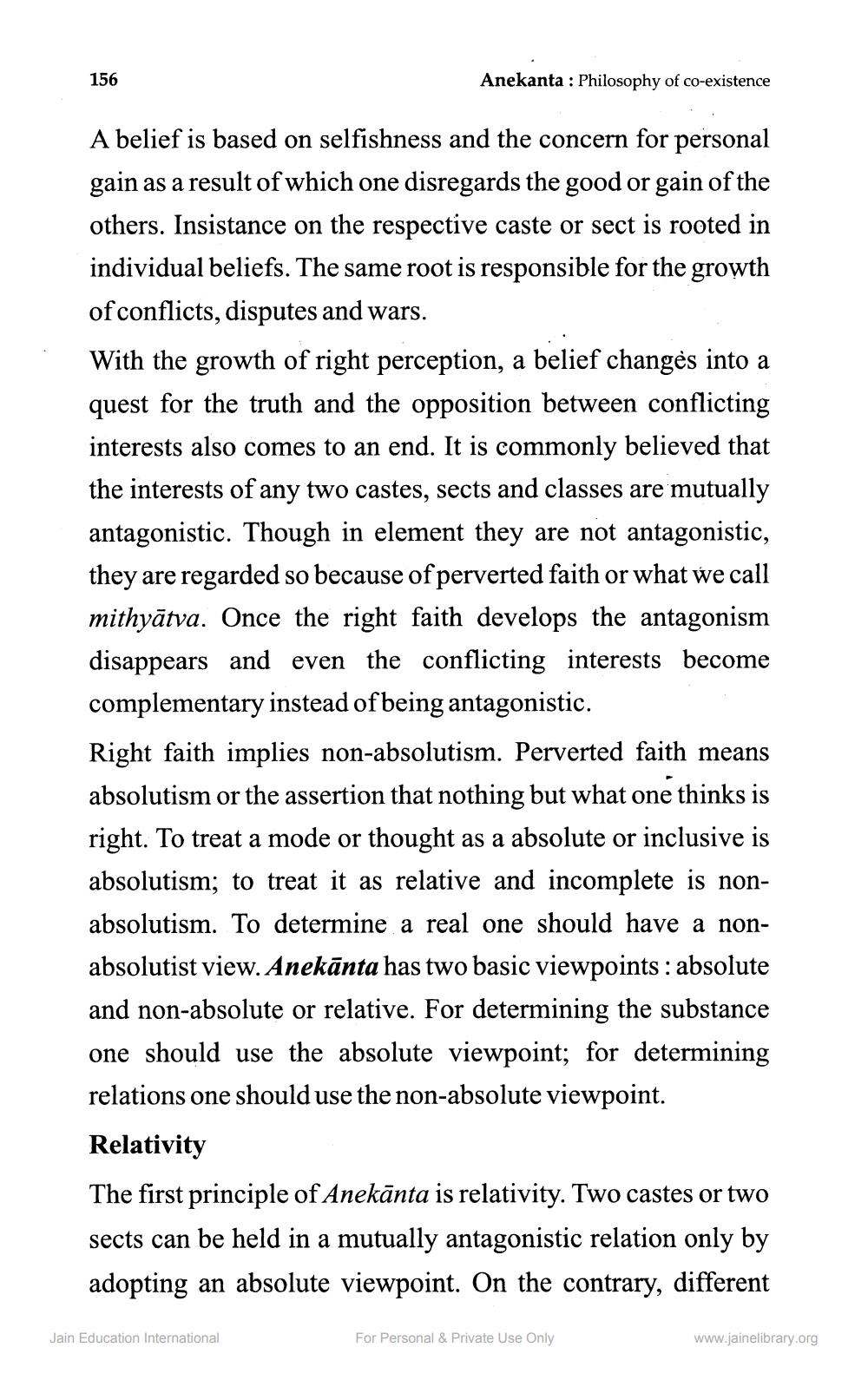________________
156
Anekanta : Philosophy of co-existence
A belief is based on selfishness and the concern for personal gain as a result of which one disregards the good or gain of the others. Insistance on the respective caste or sect is rooted in individual beliefs. The same root is responsible for the growth of conflicts, disputes and wars.
With the growth of right perception, a belief changes into a quest for the truth and the opposition between conflicting interests also comes to an end. It is commonly believed that the interests of any two castes, sects and classes are mutually antagonistic. Though in element they are not antagonistic, they are regarded so because of perverted faith or what we call mithyātva. Once the right faith develops the antagonism disappears and even the conflicting interests become complementary instead of being antagonistic.
Right faith implies non-absolutism. Perverted faith means absolutism or the assertion that nothing but what one thinks is right. To treat a mode or thought as a absolute or inclusive is absolutism; to treat it as relative and incomplete is nonabsolutism. To determine a real one should have a nonabsolutist view. Anekānta has two basic viewpoints: absolute and non-absolute or relative. For determining the substance one should use the absolute viewpoint; for determining relations one should use the non-absolute viewpoint.
Relativity
The first principle of Anekānta is relativity. Two castes or two sects can be held in a mutually antagonistic relation only by adopting an absolute viewpoint. On the contrary, different
Jain Education International
For Personal & Private Use Only
www.jainelibrary.org




